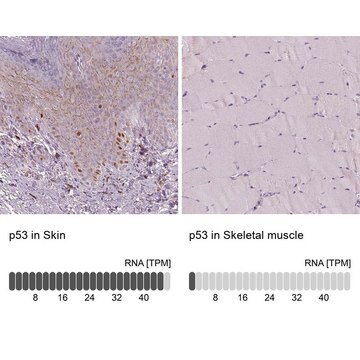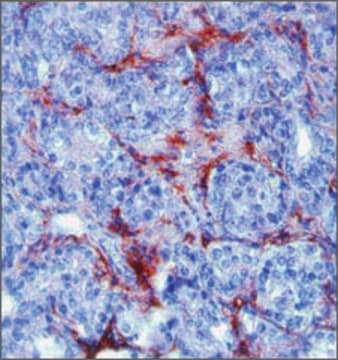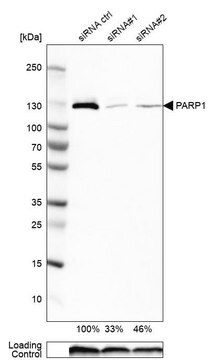OP29L
Anti-p53 (Ab-3) (Mutant) Mouse mAb (PAb240)
lyophilized, clone PAb240, Calbiochem®
Synonym(s):
Anti-p53 antibody
About This Item
Recommended Products
biological source
mouse
Quality Level
antibody form
purified antibody
antibody product type
primary antibodies
clone
PAb240, monoclonal
form
lyophilized
does not contain
preservative
species reactivity
hamster, rat, mouse, bovine, chicken, human
should not react with
Xenopus
manufacturer/tradename
Calbiochem®
storage condition
OK to freeze
isotype
IgG1
shipped in
ambient
storage temp.
2-8°C
target post-translational modification
unmodified
Gene Information
human ... TP53(7157)
General description
Immunogen
Application
Frozen Sections (10 µg/ml)
Gel Shift (see comments)
Immunoblotting (5 µg/ml)
Immunofluorescence (1-20 µg/ml)
Immunoprecipitation (1 µg per sample)
Paraffin Sections (see application references)
Warning
Physical form
Reconstitution
Analysis Note
SK-OV-3 cells
A431, Hs27 (wild-type p53), or SK-BR-3 cells or breast carcinoma
Other Notes
Greenblatt, M.S., et al. 1994. Cancer Res.54, 4855.
Barak, Y., et al. 1993. EMBO J.12, 461.
Kastan, M.B., et al. 1992. Cell71, 587.
Kuerbitz, S.J. 1992. Proc. Natl. Acad. Sci. USA89, 7491.
Lane, D.P. 1992. Nature358, 15.
Kastan, M.B., et al. 1991. Cancer Res.51, 6304.
Legal Information
Not finding the right product?
Try our Product Selector Tool.
Storage Class Code
11 - Combustible Solids
WGK
WGK 1
Certificates of Analysis (COA)
Search for Certificates of Analysis (COA) by entering the products Lot/Batch Number. Lot and Batch Numbers can be found on a product’s label following the words ‘Lot’ or ‘Batch’.
Already Own This Product?
Find documentation for the products that you have recently purchased in the Document Library.
Our team of scientists has experience in all areas of research including Life Science, Material Science, Chemical Synthesis, Chromatography, Analytical and many others.
Contact Technical Service





